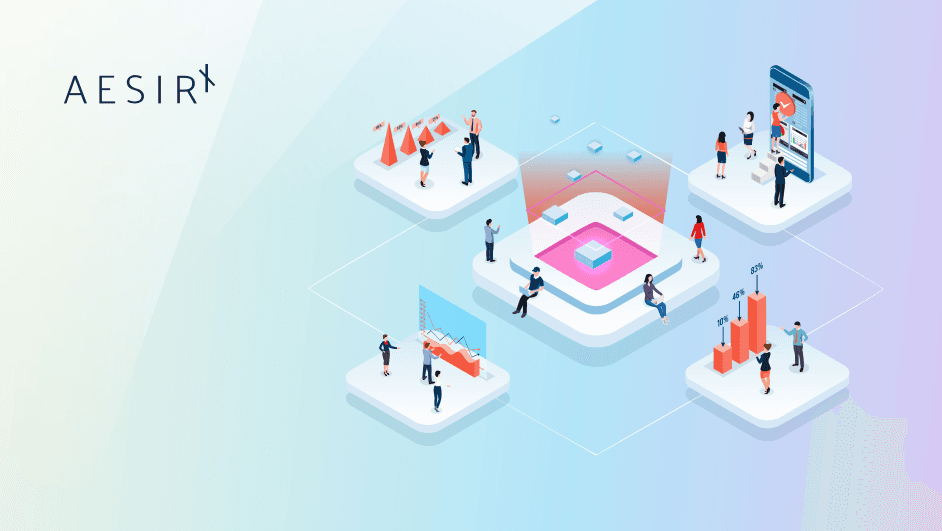Nov 05, 2024
The Impact of dApps on User Privacy and Security

With so much personal data being shared online, privacy and security have become huge concerns. In 2023, over 353 million people in the U.S. were impacted by data breaches and leaks [1].
Traditional applications, relying on centralized systems, often leave users exposed to data misuse, but decentralized apps (dApps) built on blockchain are offering a fresh solution.
With the blockchain market on track to hit nearly $1 trillion by 2032 [2], dApps are stepping up to provide better privacy, transparency, and control for users.
Keep reading to understand how dApps are shaping the future of online privacy and security.
 Learn how dApps strengthen privacy and security for users.
Learn how dApps strengthen privacy and security for users.
What Are Decentralized Applications (dApps)?
Decentralized applications, or dApps, are software programs that run on a distributed network, usually using blockchain technology like Ethereum or Concordium. Unlike traditional apps, which rely on a central server to operate, dApps work on a network of computers that communicate directly with each other. This means that no single person or organization controls the app or its data, making dApps much more resistant to censorship, tampering, and data manipulation.
The Impact of dApps on User Privacy and Security
1. How dApps Strengthen Privacy
- User Control Over Data
Unlike traditional apps that require users to give their personal data to a central authority, dApps allow users to keep control over their information. Data is stored across a decentralized network, making it harder for hackers to access sensitive data.
- Decentralized Identity (DID)
dApps use decentralized identity solutions (DID), enabling users to create and manage their digital identities without relying on services like Google or Facebook. This enables individuals to verify their identity while keeping personal details private.
- Zero-Knowledge Proofs
Zero-knowledge proofs (ZKPs) let users confirm information without revealing it. For instance, someone can prove they are old enough to use a service without sharing their exact birthdate. This helps limit personal information exposure and improves privacy.
- Anonymity and Pseudonymity
Many dApps allow users to interact anonymously or pseudonymously. Because data is encrypted and decentralized, it’s difficult to trace a user’s activities back to their real-world identity, providing an extra layer of privacy.
Example: AesirX dApp, powered by Concordium blockchain, strengthens user privacy through decentralized identity solutions (DID) with AesirX Shield of Privacy.
This system protects personal information - such as email addresses, social media accounts, and wallet IDs - by masking them through pseudonymization.
Users can easily grant, revoke or change consent for data collection, giving them control over their information.
Additionally, they can verify their identities without sharing sensitive details, ensuring secure interactions on the platform.
By prioritizing privacy, AesirX dApp aligns with regulatory standards like GDPR, providing a compliant and user-friendly experience that showcases the impact of dApps on user privacy and security.
 Zero-knowledge proofs verify information without revealing identity, highlighting the impact of dApps on user privacy and security.
Zero-knowledge proofs verify information without revealing identity, highlighting the impact of dApps on user privacy and security.
2. Security Enhancements with dApps
- Immutable Data and Audit Trails
Blockchain technology makes data immutable once it's added, creating tamper-proof records and reliable audit trails, making it difficult for attackers to manipulate information or exploit vulnerabilities.
- Decentralized Infrastructure
Unlike traditional applications, which have single points of failure, dApps distribute data across multiple nodes. This makes them more resilient to attacks; if one node fails, others keep the system running smoothly.
- Smart Contracts for Secure Transactions
dApps use smart contracts - self-executing agreements coded to automatically fulfill terms. This reduces the need for intermediaries, lowers fraud risks, and provides a secure way to handle transactions.
- Community Governance and Transparency
Many dApps enable user participation in decision-making for updates and security measures. This collective governance helps maintain security, while the transparency of blockchain allows users to verify that the application functions correctly.
Example: AesirX dApp improves security by storing consent records on the Concordium blockchain, making the data immutable and reliable.
This approach strengthens data integrity and creates a clear audit trail for all transactions and interactions. With AesirX Shield of Privacy, users can grant consent through a secure wallet signing request, making their agreements both verifiable and tamper-proof, which greatly minimizes the risk of fraud.
Additionally, users have the flexibility to revoke or update their consent at any time, which not only boosts their security but also strengthens their trust in the platform.
 Smart contracts help ensure secure transactions, highlighting the impact of dApps on user privacy and security.
Smart contracts help ensure secure transactions, highlighting the impact of dApps on user privacy and security.
Redefining Privacy and Security with dApps
dApps are changing the way we protect our personal information online. By giving users control over their data and using technologies like blockchain, smart contracts, and zero-knowledge proofs, dApps create a safer online experience.
The AesirX dApp uses Concordium blockchain technology to improve privacy through decentralized identity and consent management. This setup allows users to take charge of their data, easily grant or revoke consent for its use, and verify their identity without sharing sensitive information. This builds trust in the digital world.
Understanding the impact of dApps on user privacy and security is essential for everyone.
Check out how AesirX dApp can protect your data and
keep your privacy intact today!
Sources:
1. Identity Theft Resource Center 2023 Annual Data Breach Report
2. Blockchain technology cloud market size worldwide in 2021, with a forecast for 2030